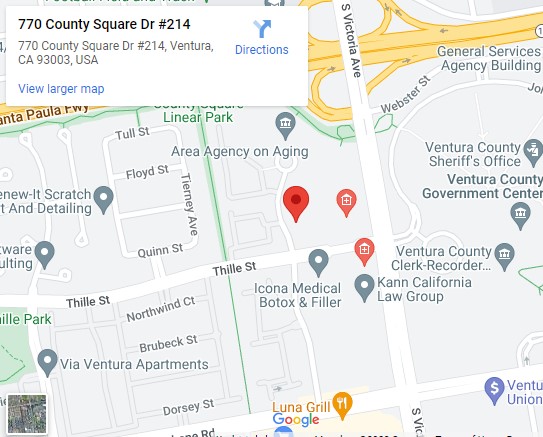Green Card vs. U.S. Citizenship: Everything You Need to Know
Whether you’re considering long-term residency or aiming to become a full-fledged citizen, understanding the nuances between these two pathways is crucial for making informed decisions. If you or someone you know is seeking immigration assistance in California, look no further than El Camino Inmigracion. This post will delve into an essential aspect of immigration law: the difference between U.S. Green Card and U.S. citizenship.
Our immigration lawyer in California is equipped with the knowledge and experience to tackle complex immigration issues, whether it’s obtaining a U.S. Green Card, navigating the path to U.S. citizenship, or handling other related matters.
Contact us today to schedule a free consultation and experience the difference our comprehensive immigration services can make in your life. Let us be your trusted partner on your immigration journey, ensuring your rights and interests are protected every step of the way.
What is a U.S. Green Card?
A U.S. Green Card is an immigration document that allows individuals to live and work permanently in the United States. It serves as proof of lawful permanent residency, granting certain rights and privileges to the cardholder. Obtaining a U.S. Green Card is a significant milestone for individuals who wish to establish a long-term presence in the United States.
What is U.S. Citizenship?
 U.S. citizenship is the highest legal status granted by the United States government to foreign-born individuals. It confers numerous rights, privileges, and responsibilities that are not available to U.S. Green Card holders or other non-citizens. When someone becomes a U.S. citizen, they are legally recognized as a member of American society and are entitled to certain fundamental rights.
U.S. citizenship is the highest legal status granted by the United States government to foreign-born individuals. It confers numerous rights, privileges, and responsibilities that are not available to U.S. Green Card holders or other non-citizens. When someone becomes a U.S. citizen, they are legally recognized as a member of American society and are entitled to certain fundamental rights.
What is the Difference Between U.S. Green Card and U.S. Citizenship?
Green Card
When someone wants to permanently immigrate to the United States, the initial step is to apply for a Green Card, also known as a permanent residence. There are various paths through which one can qualify for a Green Card.
The most common routes include family sponsorship through a qualifying relative (such as a U.S. Citizen or a Lawful Permanent Resident spouse, child, parent, or sibling), or employment-based sponsorship, where an individual first obtains a work visa based on a job offer and then becomes eligible to apply for permanent residence through their employer.
Other special categories, like asylum seekers, victims of domestic violence under the Violence Against Women Act (VAWA), diversity visa lottery winners, and more, also qualify for a Green Card.
Additionally, individuals with exceptional abilities (EB-1), those with employment in the national interest (EB-2), and EB-5 immigrant investors who invest at least half a million dollars in a new business enterprise or Regional Center project have avenues to obtain a Green Card.
U.S. Citizenship
While there are various ways to secure a Green Card, the ultimate goal is to become an American Citizen in the United States. Once a person has obtained a Green Card, they usually need to wait for a certain number of years before becoming eligible to apply for U.S. citizenship.
For instance, those who obtained their Green Card through marriage to a U.S. citizen and remain married must wait three years from the date they became a permanent resident to apply for citizenship. Others must wait five years from the date they obtained permanent residency to become eligible for U.S. citizenship.
However, it’s important to note that applying for U.S. citizenship is not mandatory. Permanent residents can continue to renew their Green Cards every ten years without pursuing citizenship. Nevertheless, it may still be beneficial to consider the advantages of applying for citizenship.
How Do I Apply for a U.S. Green Card?
The process of applying for a Green Card may differ based on individual circumstances, but here is a general outline of the application process:
- A petition is submitted on your behalf by someone (family member, spouse, employer, etc.), and in certain cases, you may be able to file the petition yourself
- The petition is reviewed and approved by USCIS (U.S. Citizenship and Immigration Services)
- A visa becomes available in the specific category you are applying for
- File a Green Card application with USCIS or a visa application with the U.S. Department of State, depending on your situation
- Attend a biometrics appointment to provide your fingerprints and other necessary identification information
- Attend a green card interview where your application and supporting documents will be reviewed
- Finally, you will receive a decision on your application, indicating whether your Green Card application or visa application has been approved
What Are the Requirements for Me to Become a U.S. Citizen?
If you have been a permanent resident of the United States for a minimum of 5 years, have been married to a U.S. citizen for at least 3 years (making you eligible as the spouse of a U.S. citizen), or have qualifying service in the U.S. armed forces, you may be eligible for naturalization.
Once you meet any of these qualifications, you need to fulfill the following basic requirements to obtain naturalization:
- Having physically resided in the United States for either 2 1/2 years as a permanent resident or 1 1/2 years if married to a U.S. citizen
- Not having spent more than 12 months (out of the total 5 years or 3 years) outside the United States
- Residing at your current address for at least 3 months
- Being at least 18 years old
- Demonstrating good moral character
- Possessing the ability to speak, read, and write basic English
- Demonstrating basic knowledge of U.S. history and government by passing a test
- Agreeing to support the Constitution of the United States
- Taking an oath of allegiance to the United States
If you are a U.S. citizen, your child may be eligible for naturalization under certain conditions. These conditions include your child being born outside the United States and currently residing there, along with meeting all other eligibility requirements.
It’s important to note that individuals with criminal backgrounds may still have the opportunity to qualify for naturalization, depending on the seriousness of the crime committed.
We can Help You Get a Green Card or Become a U.S. Citizen
Understanding the difference between U.S. Green Card and U.S. citizenship is crucial when navigating the complexities of the immigration system. While a Green Card provides permanent residency and numerous rights, U.S. citizenship offers additional privileges and responsibilities that come with being a full-fledged member of American society.
When dealing with immigration matters in California, enlisting the services of a reputable immigration law firm like El Camino Inmigracion can make all the difference. Our dedicated team of experienced immigration attorneys is committed to providing exceptional legal services tailored to your specific needs.
Whether you are seeking a U.S. Green Card, exploring the path to U.S. citizenship, or facing other immigration challenges, our law firm is dedicated to helping you achieve your immigration goals. We can assist you with Adjustment of Status, Family Immigration, Marriage and Fiance Visa, and DACA.
Take the first step toward a successful immigration journey by scheduling a free consultation with El Camino Inmigracion. Experience the difference our trusted legal services can make in your life.




